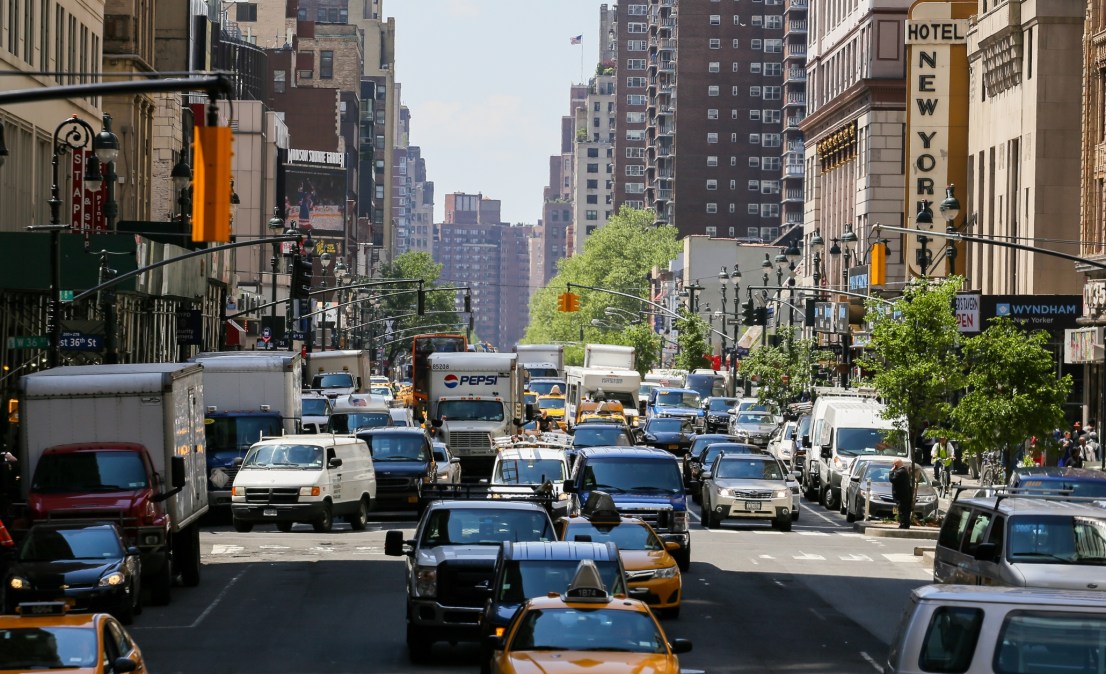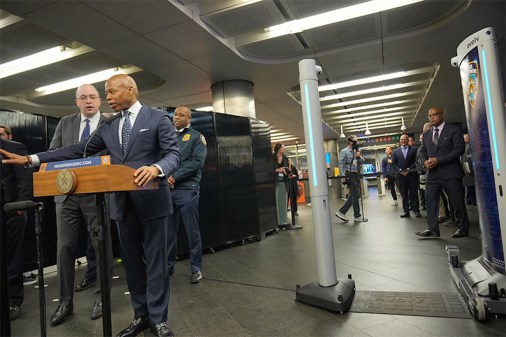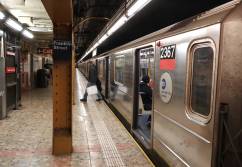Nine curb-monitoring, accessibility startups join NYC transit accelerator

New York-area transit agencies may soon begin testing some new technologies to improve accessibility, raise additional revenue and reduce traffic congestion, following an announcement Thursday that named the participants of a regional startup accelerator program.
The Metropolitan Transportation Authority and the New York City Transit Tech Lab, a consortium of transit agencies that attempt to solve problems in transportation, named nine technology startups that will receive support as they develop software and sensor-based devices during a “rigorous” eight-week program.
“At the MTA, we believe that start-ups are key to unlocking innovative ideas to address our most pressing transportation challenges,” Mark Dowd, MTA’s chief innovation officer, said in a press release.
The participating agencies, which also include the Port Authority of New York and New Jersey, the New York City Department of Transportation, NJ Transit and Amtrak, will help the companies develop proofs-of-concept in the eight-week program, some of which will be approved for testing in subsequent pilot programs.
Among the startups is Acoustic Protocol, which develops a mobile app that converts public audio announcements into text messages for users who are deaf or hard of hearing.
NaviLens, meanwhile, develops a mobile app for visually impaired users that uses local smartphone data, such as accelerometer data and visual information collected by camera, to provide navigation guidance without the need for GPS or a data connection.
Okeenea develops a smartphone app for visually impaired users that communicates with beacons installed in the environment, which relay information like crosswalk status.
Knaq develops analytics software for elevator and escalator management and maintenance.
Carmera develops high-definition maps for autonomous vehicles and supplies “up-to-the-minute” data on roadway obstructions and parking.
Allvision IO supplies data on curb infrastructure and monitors behavior of commercial and non-commercial vehicles around curbs.
CurbFlow, the company’s website says, “acts as air traffic control for the curbside, efficiently orchestrating commercial operator pickup and drop-off activity to available curb space in real time.”
Numina uses camera-based sensors to monitor curbs and track vehicle, pedestrian and bicycle traffic patterns.
Miles is an app that awards users points for using various modes of transit, which can be redeemed for rewards, like a latte or a massage.
Last year, the program selected six companies, four of which continued on to develop regional pilots projects for things like early detection of mechanical failures of buses and an app that delivers personalized alerts to users based on past commuting behavior.






